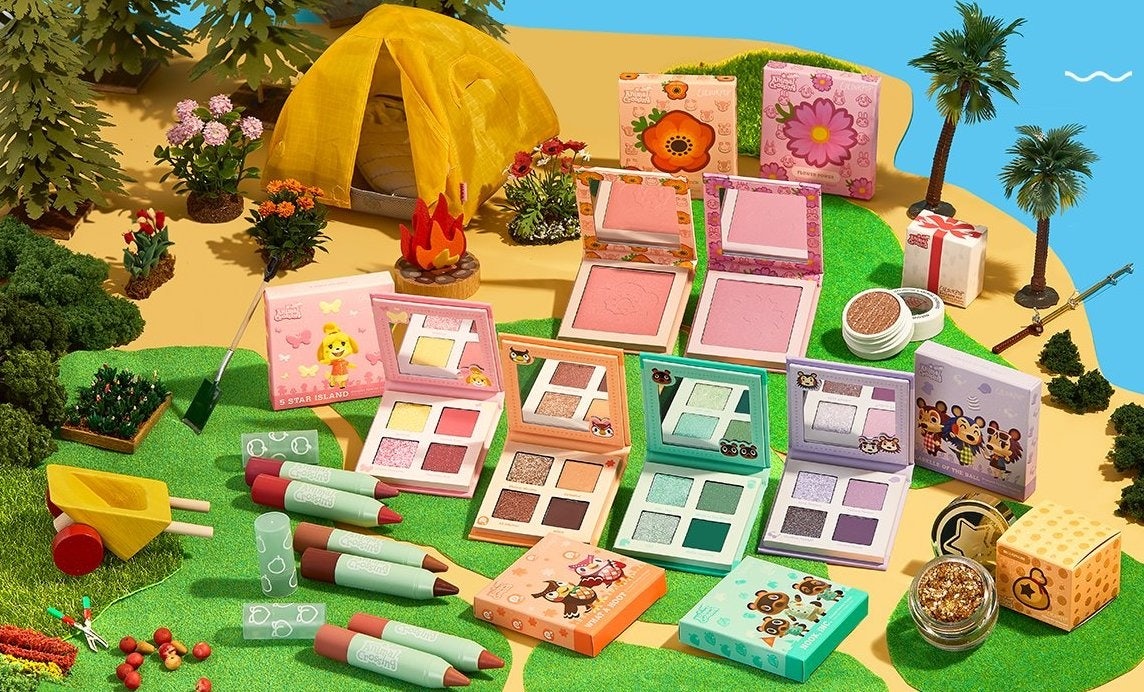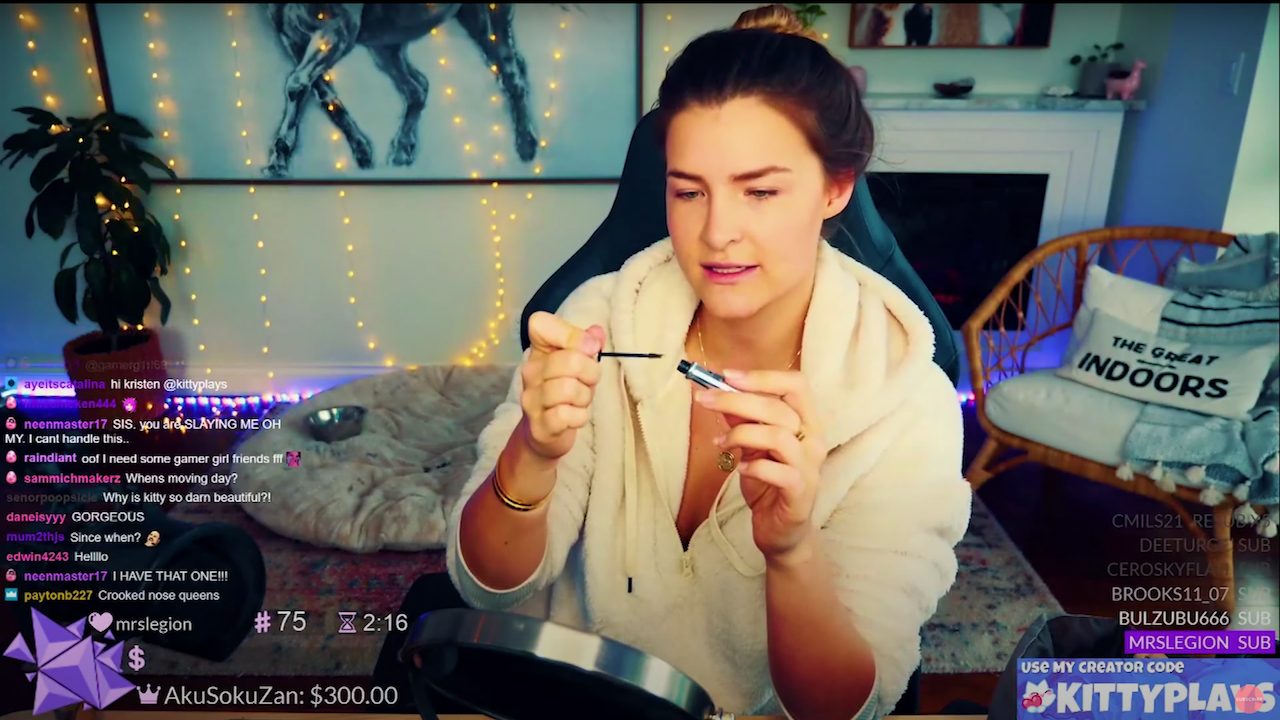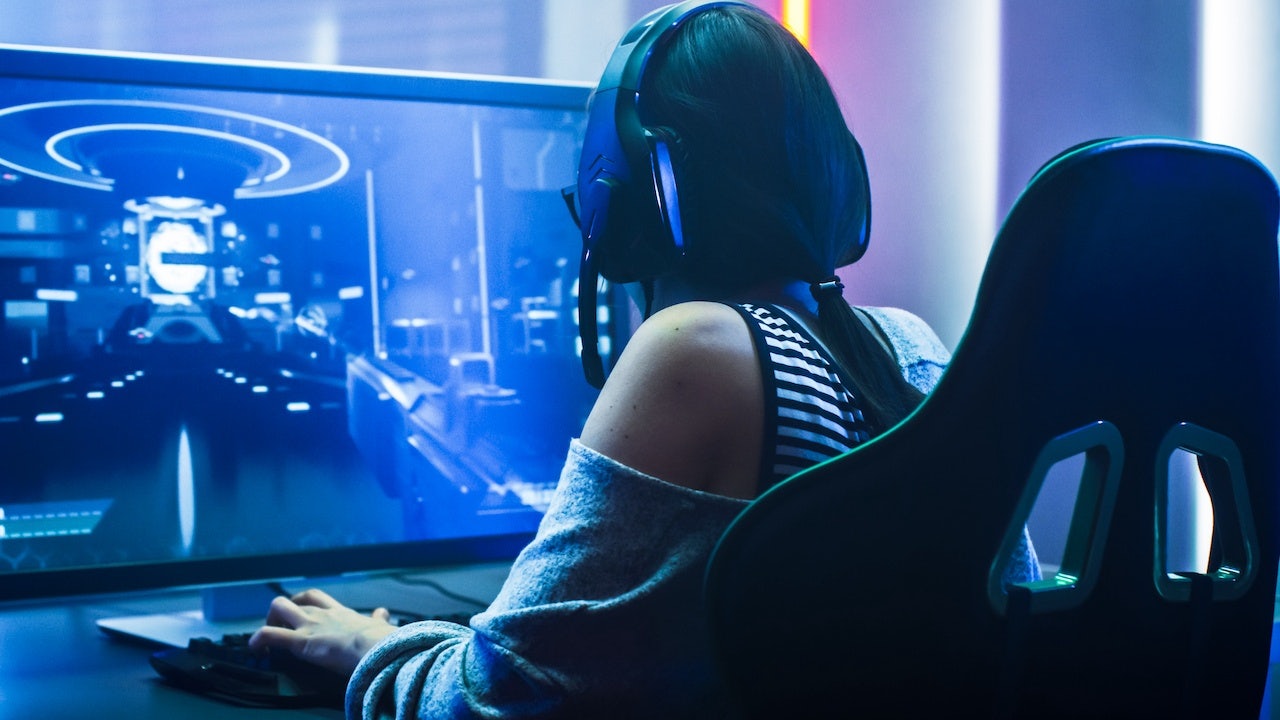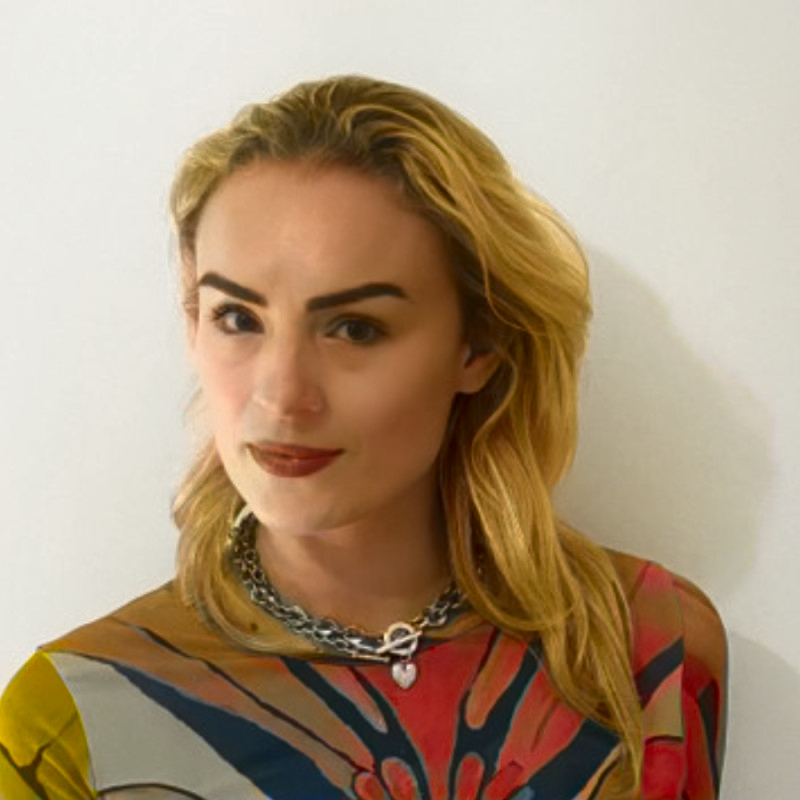Key Takeaways:#
- Despite the mainstream appeal of gaming for brands across the consumer spectrum, the beauty industry has yet to infiltrate the metaverse quite in the same way that fashion and music have.
- Brand-influencer collaborations and storytelling through virtual experiences remain the most popular routes for beauty brands to tap into gaming, with relatively few opting for in-game product integration.
- Trend forecasting agency WGSN predicts that digital make-up artists (aka “Skillusionists”) will thrive by 2023 and in-game beauty will flourish creatively.
Throughout the past year of global coronavirus lockdowns, our digital selves are likely to have seen far more public exposure than our physical selves, whether via Zoom appearances, social media profiles, or video game avatars. According to trend forecasting agency WGSN, time spent gaming increased 29 percent during the pandemic.
In-game avatars have become a key part of the players’ identities, and a growing number of fashion brands have been tapping into the metaverse to offer virtual goods that can represent social capital and enable self-expression, creating digital versions of their real-world collections. These cosmetic add-ons, or “skins,” now earn the gaming industry around $40 billion a year, according to DMarket.
But beauty brands have been far more apprehensive towards the space, with only a handful getting in on the game, so to speak. Although gaming has traditionally been a male-dominated pastime, the female gamers now represent 41 percent of the total in the United States and 40 to 45 percent in Asia, offering a seemingly obvious channel to market beauty that hasn’t been realized.
And as the distinction between physical and virtual selves becomes increasingly blurred, players will seek out more options for their appearances in the games they favor and look to make beauty-focused alterations accordingly.
For example, last year The Sims’ executive producer Lyndsay Pearson apologetically pledged that the game would increase inclusivity by incorporating more skin tones and hairstyles, following a public petition on the issue, while Nintendo’s Animal Crossing: New Horizons gave players the ability to add birthmarks, moles, freckles and vitiligo to their avatars, and, following another viral petition, added a wider variety of hairstyles.
While the means to achieve in-game inclusivity have increased, successful cosmetics integration still feels preliminary. Brands such as Givenchy Beauty and MAC Cosmetics have both taken initial steps by inviting players of The Sims 4 and Animal Crossing to try virtual make-up products such as powder and lipstick, with Givenchy Beauty offering flowery surroundings to represent wearing perfume.
Creating immersive virtual experiences can be more innovative than offering straightforward virtual products, serving as a content-commerce vehicle for brand storytelling. Japanese skincare label Tatcha took a step in this direction with its virtual pop-up on Animal Crossing, which was filled with wellness experiences to promote the brand’s new Rice Wash cleanser.
Clare Varga, head of beauty at WGSN, sees a much more creative evolution ahead for virtual make-up. The agency coined the term “Skillusionists” in its Beauty Personas 2023 report to refer to make-up artists who “challenge the status quo” and “create their own beauty narratives.” It is this group that Varga says will be next to disrupt the metaverse. “They will merge real-life looks with their digital alter egos,” she told Jing Daily. “In real life (IRL), they will choose brands that share their values of inclusivity, diversity and self-expression.”
Logo t-shirts may look cool on avatars, but powder and lipstick don’t quite have the same attraction as a full face of virtual artistry that one may not be adventurous enough to display in person. Varga predicts that by 2023, brands will be collaborating with digital designers and VR artists to develop experimental realms of creative expression. “This community will likely be involved in the product development process, elevating make-up to an art form and experimenting with different media and products, blending IRL and digital effects,” she said.

Until virtual make-up evolves, the most successful beauty x gaming collaborations appear to be physical ones that can satisfy the fans of popular titles such as Animal Crossing’s recent collection with American cosmetics brand Colourpop. MAC has also partnered with leading Tencent-owned game Honor of Kings in China — the first offering, a collection of lipsticks, in 2019 racked up 14,000 pre-orders and quickly sold out, as did a second drop in 2020 featuring a wider variety of products.

Beauty brands are also collaborating with top gamers, who have become leading influencers in their own right, such as KittyPlays, who currently has 607,000 subscribers to her YouTube channel. Last year Benefit Cosmetics collaborated with esports organization Gen.G on a two-week IG and YouTube series featuring KittyPlays and other female esports figures, many of whom often wear make-up while broadcasting via Twitch. Another upcoming collaboration involves e.l.f Cosmetics’ participation in “TikTok Gamers Got Talent,” which ties into the brand's campaign around "Gameup," or the intersection of gaming and makeup, aimed at empowering women to take their place in a traditionally male-oriented world.
Gamers are beauty consumers in 2021. Whether beauty’s e-sports marketing takes a different route to fashion, with more storytelling, influencer collaborations and game-inspired product drops, or whether we will see further in-game development as avatars become more sophisticated and gain further importance in our increasingly digital-first society, there are evidently bigger opportunities on the horizon
As Varga says, “Image in these alternative realities is just as important as in IRL, and wearing a new beauty product in the virtual world carries just as much kudos as in the real world.”

